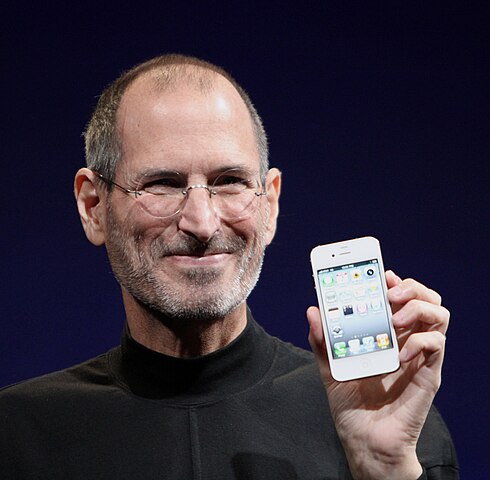
Today I woke to a very typical morning in Moscow, but as soon as I opened my Facebook feed I realized that while I was sleeping something huge has happened: the world lost one of its biggest and the most fearless visionary, Steve Jobs.
Every single blogger in the world has probably written something about Steve Jobs today. Mostly good things, of course, because the man, no doubt, was a genius. I particularly liked an obituary by David Pogue on New York Times Opinionator: Steve Jobs: Imitated, Never Duplicated First of all, Pogue had a privilege of personally knowing Mr. Jobs - we all know about Mr. Jobs' peculiar yet admirable habit of calling Apple's reviewers and answering emails from customers. But most importantly, Pogue in his post concentrates not simply on praising Jobs, but on what made Steve Jobs so different, what made him a genius who we now compare to Leonardo Da Vinci (has anyone ever been compared to Da Vinci?), Thomas Edison, and Henry Ford.
However, what interests me the most is not the story of Mr. Jobs' success, but the way he handled his failure. We all know that at some point, precisely in May 1985, Jobs was fired from Apple. It sounds incredulous to us right now, yet this indeed happened. For most of us that would be the end of it. But not for Steve Jobs. Later on, already mega-successful Jobs said that "getting fired from Apple was the best thing that could have happened to him."
"The heaviness of being successful was replaced by the lightness of being a beginner again, less sure about everything. It freed me to enter one of the most creative periods of my life." (Life Lessons from Jobs)In my opinion, the way a person handles failure truly defines who he/she is. It's not without a reason many MBA essays include "3 setbacks" question. Only true leaders are able to push through and not give up. It is the most dreadful part in everyone's life. Yet Steve Jobs was facing even a more difficult task: it is always harder to fail when one has already known success. If failure is handled right it is a step towards great new beginnings, but if it is handled badly it is the beginning of the end.
If Mr. Jobs couldn't handle his failure, the world would have never seen an iPod, iPhone, iPad, or iMac; a visionary would have never been born. “I’m pretty sure none of this would have happened if I hadn’t been fired from Apple,” Mr Jobs said in 2005 (The Economist). If not for his failure, Mr. Jobs' words of wisdom shared with Stanford graduates wouldn't be supported by the life story of continuous, unparalleled, and always daring innovation:
“Your time is limited, so don’t waste it living someone else’s life. Don’t be trapped by dogma — which is living with the results of other people’s thinking. Don’t let the noise of others’ opinions drown out your own inner voice. And most important, have the courage to follow your heart and intuition. They somehow already know what you truly want to become. Everything else is secondary.”
*Also, check out Fareed Zakaria's blog post on the very same topic: Steve Jobs' special capacity to learn from failure
*And, please, do watch the full video of Steve Jobs' Standford Commencement speech. It's remarkable, yet simple. Like an iPhone :)
No comments:
Post a Comment